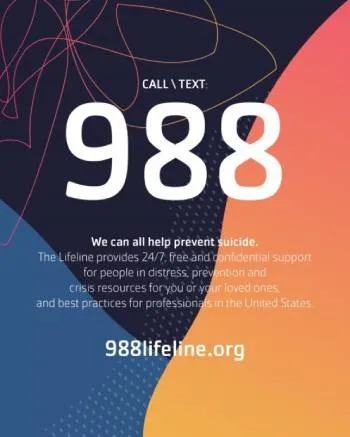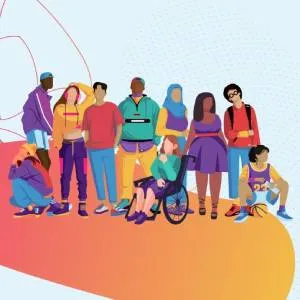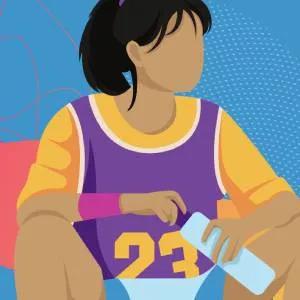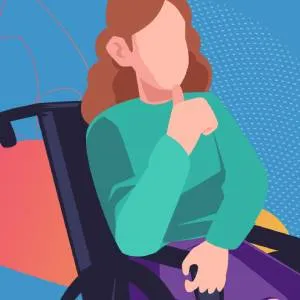Teen Mental Health Resource Hub
Supporting Teens and Families Struggling With Mental Health
With funding provided by the state, North Carolina YMCAs are working to increase awareness about mental health resources available to teens and their families in 2024 and beyond.
Many teens in North Carolina and nationwide are experiencing mental health challenges. According to a 2022 study of teens, conducted by the National Alliance of Mental Illness, 1 in 6 teens reported experiencing negative emotions all the time or often, and 1 in 4 have been diagnosed with a mental health condition. The Centers for Disease Control and Prevention (CDC) recently published its 2021 study of Youth Risk Behavioral Surveillance System (YRBSS)
- The study shows that North Carolina's students in grades 9 through 12 experienced an uptick in suicidal behaviors since 2019.
- Additionally, there was an increase in reported rates of depression, with nearly 34% of students surveyed in 2021 saying their mental health was not good most of the time or always.
We all have mental health. Mental health is how we think, feel and act. The best way to normalize and have a positive impact on mental health is to talk about it.
About Mental Health
From a young age, we're taught that you should visit the doctor when you feel physical pain or discomfort. But what do you do when the pain and discomfort are coming from your thoughts and emotions?
While physical illnesses affect part of your body, mental illnesses affect your emotions, thinking, or behavior— and sometimes a combination of the three. Left untreated, mental illnesses can impact your ability to:
- do well in school or at work
- maintain healthy relationships
- manage day-to-day tasks
- and so much more…
Even though diagnosing a mental illness is not as straightforward as diagnosing a physical illness (like a broken leg or a cold), they are all health conditions with life-saving treatments available.
Mental Illness Is Nothing to Be Ashamed Of
Just like asthma or diabetes, you can’t control whether you experience mental illness or not. Some people are more prone to mental illnesses due to genetics, while others may experience trauma that leads to mental illness.
The bottom line is that we can’t control the cards we’re dealt, but we can choose to use the resources available to help us.
Mental Illness Doesn’t Have a “Face”
Mental illness can affect anyone— regardless of age, race, sex, gender, sexual orientation, income, or social status. It could be the friend you know is having problems at home or the friend who seemingly has it all together.
In a group of you and your four closest friends, at least one has experienced some form of mental illness.
You Are Not Alone
According to a study by the Centers for Disease Control (CDC), the presence of almost every poor mental health indicator has risen since 2011. Of course, as a young person, you experience a unique set of challenges in life, but just because mental health struggles are common doesn’t mean you shouldn’t seek help.
It’s okay not to feel okay sometimes. However, being honest about when to reach out for help is essential. The YMCA has teen mental health resources to help you feel seen, safe, and get the help you need.
Why a Teen Mental Health Resource Hub?
Our mental health affects every aspect of our lives– from our thoughts, feelings, and actions to how we handle relationships, stress, and decision-making. These effects aren’t limited to any particular group of people, either. Millions of people in the U.S. struggle with mental health-related challenges each year.
When you look at teen mental health statistics, there’s even more evidence that young people need this information. For example:
- In 2019, 1 in 3 high school students reported experiencing persistent sadness or hopelessness.
- Between 2009 and 2019, the U.S. saw a 44% increase in high school students making suicide plans.
- 1 in 6 young people (ages 6-17) experience a mental health disorder yearly.
Youth, People of Color, and LGBTQ+ Communities Face a Greater Risk
The unique challenges of being young, a person of color, or part of the LGBTQ+ community create a higher risk for mental health struggles. Maintaining good mental health can be more difficult for some when considering that you can hold several of these identities simultaneously.
The COVID-19 pandemic brought on new struggles for young people, too. Some of the factors that affected teen mental health during COVID-19 include (but are not limited to):
- Isolation from peers
- Rapidly adapting to virtual learning
- Changes to sleep habits (and other routines)
Many People Don’t Know How to Access Mental Health Resources
Of the many young people who struggle with a mental health disorder, only about half receive the needed treatment. Frequently, young people end up waiting over ten years to get treatment. Imagine dealing with the pain and struggles of an injury for over ten years because you didn’t have the resources you needed for treatment.
The YMCA Has the Teen Mental Health Resources You Need
The Y recognizes the significant impact that experiences tied to identity, real-life events, and stress have on young people’s mental health. Therefore, we are committed to doing everything possible to destigmatize mental health issues, support the different communities we serve, and provide the education and resources our young people are looking for.
All information on this website, including but not limited to text, graphics, images, and other material contained herein is for educational purposes only. No material on this site is intended to be a substitute for professional medical advice, diagnoses, or treatment. Always seek the advice of your physician or other qualified healthcare provider with any questions you may have regarding a medical condition or treatment and before undertaking a new healthcare regimen, and never disregard professional medical advice or delay in seeking it because of something you have read on this website. For specific medical advice, diagnoses, and treatment, consult your doctor.
The best person to give you medical advice, diagnoses, and treatment is your doctor or another qualified medical professional. Getting good care means talking personally with your doctor, who can learn about you and ask you questions, carry out an exam, and order tests when necessary. Your doctor also can help guide you to qualified psychologists, psychiatrists, neurologists, and other experts in emotional, behavioral, and mental issues.
If you are a teen or a kid and have questions, the first place to start is with your parent or guardian, who can either talk to you about your concern or help you find someone who can answer your question. Your parent, doctor, school nurse, school counselor, or another adult relative may also be able to provide guidance on where to find the help you need.
Using this website or services may link to third-party websites, services, applications, resources, and information that originated and are developed outside of the YMCA of Greater Charlotte, The National Council of Young Men’s Christian Associations of the United States of America, and YMCA of the USA (collectively referred to as YMCA). These links are being provided as a convenience and for informational purposes only. They do not constitute an endorsement or an approval by the YMCA of any of the products, services, or opinions of the corporation or organization, or individual. The YMCA bears no responsibility for the accuracy, legality, or content of the external site or subsequent links. Contact the external site directly for answers to questions regarding its content. YMCA is not responsible for any personal information collected through these means. Any interactions you have with these websites, services, or applications are beyond the control of the YMCA. When you post information to or through such services, those websites, privacy policies, and cookie usage policies apply directly.
We urge you to read the privacy and security policies of any external websites before providing any personal information while accessing those websites. The YMCA is a 501(c)(3) not-for-profit charitable organization dedicated to Youth Development, Healthy Living, and Social Responsibility.
This resource hub is for educational purposes only.
The YMCA of Greater Charlotte developed the Teen Mental Health Resources Hub with funding from the City of Charlotte. The NC Alliance of YMCAs appreciates the Charlotte Y sharing this resource across the state via the Alliance website.











